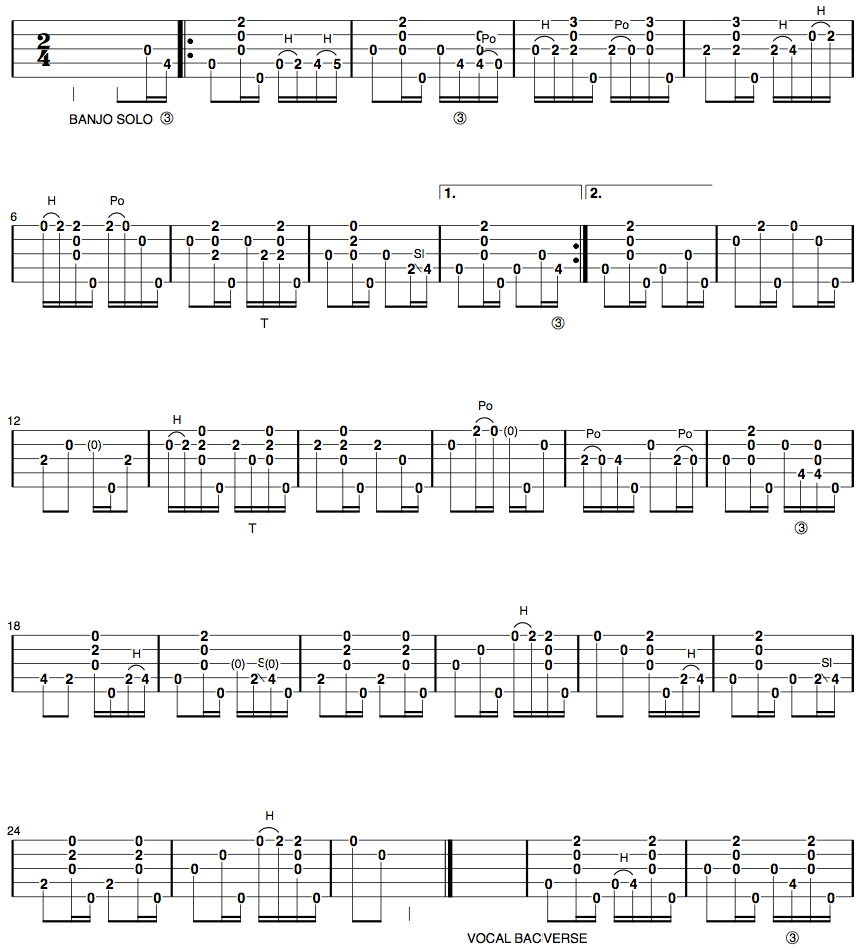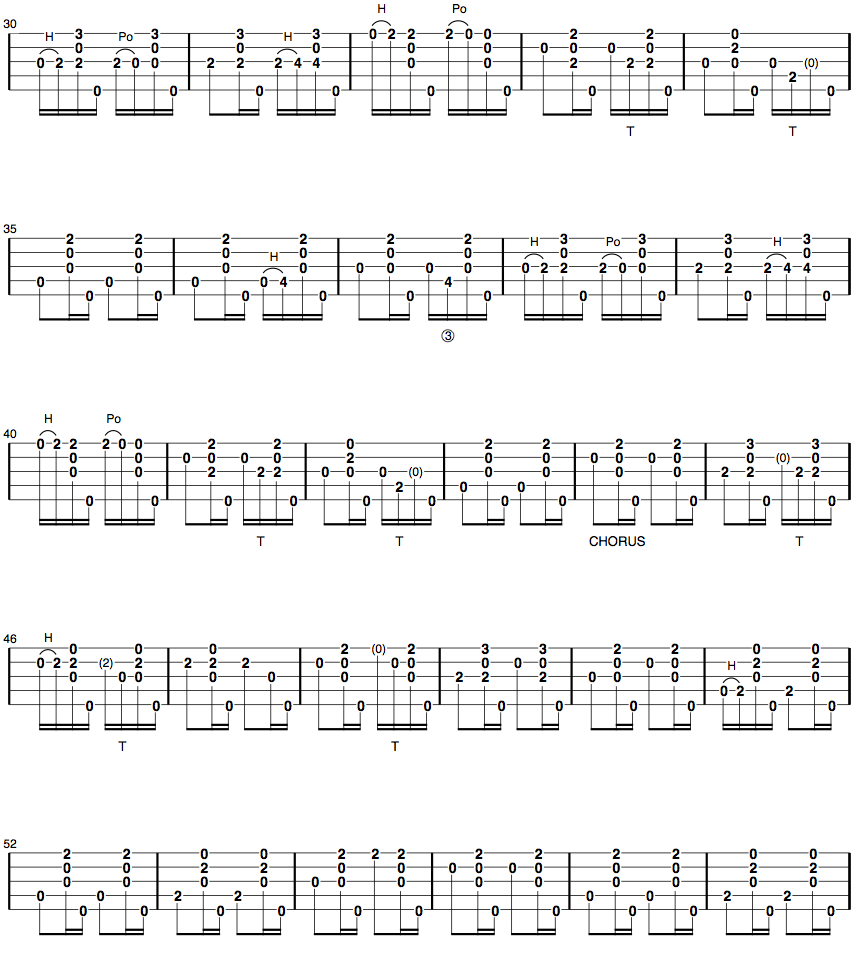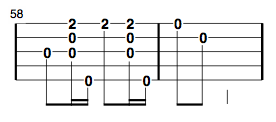Click on the button below to get the PDF download for this tab delivered to you, and get 2 new tunes and tabs sent to you every week!
Reclaiming Dixie
When I was a child of about 5 or 6, swinging and singing was a favorite past-time. And I had a small handful of “go-to” songs for the occasion – my “swing set,” if you will…
“Dixie” was one of them.
I’d belt out the words as loud as I could, while my legs propelled me as high as the chains would allow (and on one occasion – which led to a fractured tibia – higher).
I’m not the only one spellbound by this Dan Emmett classic. The following was published in the New Yorker during the American Civil War:
“‘Dixie’ has become an institution, an irrepressible institution in this section of the country … As a consequence, whenever ‘Dixie’ is produced, the pen drops from the fingers of the plodding clerk, spectacles from the nose and the paper from the hands of the merchant, the needle from the nimble digits of the maid or matron, and all hands go hobbling, bobbling in time with the magical music of ‘Dixie.'”
As a kid, I knew there were parts of Southern history marked by racial tensions and bigotry. In the cloistered realm of my childhood, though, I understood those to be things of the past.
The story of the South I carried around was that we’d made some mistakes we weren’t proud of, but had learned from them and created a better place. And in my little corner of the southern U.S., the available evidence fit that narrative.
At my elementary school, children of all ethnicities and colors befriended each other without a second thought. We didn’t have to learn to see past those things, because it never occurred to us that there was something to see past.
As the black and white lines of childhood blurred into the murkier adult shades of gray, I came to realize we hadn’t all come as far as I’d thought. There were still some who wished things were still the way they’d been, who were still fighting against a world where all were equal.
And I learned that “Dixie,” one of the most beloved songs of my childhood, had been recruited as a pawn in this battle. Somewhere between the year it was penned and the year of my birth, the forces of intolerance had adopted it as their anthem.
This song that was a favorite of Lincoln, a song played at his political rallies and at the announcement of Robert E. Lee’s surrender, had, for some, become a symbol of the very thing he fought to destroy.
Dixie had been stolen from me.
Without a doubt, the story of the American South is as complicated as they come. And as is always the case, and especially true here, the broad brush never paints an accurate picture.
The worst parts of that story tells of intolerance, ignorance, and unspeakable cruelty – the worst parts of our nature.
The best parts of that story tells of openness, love, and acceptance – the best parts of our nature.
It was in the South where European and African cultures collided. Where that collision was met with open-mindedness and a generosity of spirit, innovative and brilliant new works of art emerged (at a time when such collaborations were dangerous), including musical forms (1, 2, 3, 4, 5) that would go on to grip the imaginations of people around the world.
It released an explosive burst of creativity and artistic work that continues to this day, with a scope of influence in significant disproportion to the size of the region from whence it comes.
This is the South I love.
This is the South that has produced the music that’s so dear to me, along with an instrument and playing technique that encapsulates the best of Southern culture.
This is the South that’s produced some of the world’s greatest storytellers, telling stories with a richness and depth that could’ve only emerged through this open cultural exchange.
This is the South where my friend and musical companion Justin Manglitz can take a family tradition of clandestine grain distillation, mash it up with tools and techniques of the old world, and produce some of the finest and most original brown spirits ever to trickle past the soft palate.
This is the South I sing of when I sing Dixie.
For many years, I’ve been reluctant to sing it outside of the confines of my home, but that never sat well. That felt like letting the bad guys win.
After all, Dixie was stolen from me.
It’s time to take it back.
Dixie
gCGCD tuning, Brainjo level 3



Notes on the Tab
Notes in parentheses are “skip” notes. To learn more about these, check out my video lesson on the subject.
For more on reading tabs in general, check out this complete guide to reading banjo tabs.
Level 2 arrangements and video demos for the Tune (and Song!) of the Week tunes are now available as part of the Breakthrough Banjo course. Learn more about it here.
Click here for a current list of all the clawhammer songs and tunes currently available inside of The Vault
View the Brainjo Course Catalog
